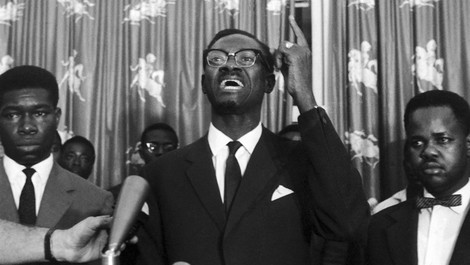Your podcast discovery platform
Curious minds select the most fascinating podcasts from around the world. Discover hand-piqd audio recommendations on your favorite topics.

piqer for: Global finds
Ciku Kimeria is a Kenyan author "Of goats and poisoned oranges" - (https://www.amazon.com/goats-poisoned-oranges-Ciku-Kimeria-ebook/dp/B00HBBWPI6), development consultant, adventurer and travel blogger (www.thekenyanexplorer.com). She writes both fiction and non-fiction focusing on African stories that need telling. She has worked on diverse pieces for various international and local publications including Quartz, Ozy, The East African etc. She has travelled to 45 countries – 16 of them in Africa. 153 countries to go and 63 territories!
"Of goats and poisoned oranges" has been extremely well received in Kenya and beyond. It tells the story of a Kenyan middle aged power couple and their complicated marriage. The novel explores issues of greed, revenge, betrayal and murder. It runs from the 1960s to 2013. It has been described as “Wicked, funny, poignant, wacky, human, a big ball of fun and danger”, “A unique and captivating book”, “Fun and intriguing”, “Impossible to put down once you start reading.”
She recently moved to Dakar, Senegal from Kenya to work on her second novel. She also works at as the Africa Communication Manager at a leading global strategy consulting firm.
She holds a B.S. in Management Science from MIT with minors in Urban Planning and International development studies.
Naming A Square In Brussels And Its Uncomfortable Link To A Slain Congolese Hero
To Africans, Patrice Lumumba was not just Congo's first prime minister, but a revolutionary pan-Africanist who was defiant in his opposition to racist colonial rule on the continent. For his fight against colonial powers and his unwavering devotion to African self-rule, he was punished by Western powers as a warning to other African leaders who refused to give in to the demands of foreign powers.
Lumumba became the country’s first prime minister upon independence on June 30, 1960 at the age of 34. But his premiership would not last long. Barely three months later, he was toppled in a Western-backed coup, after being arrested and tortured. On Jan. 17, 1961, he was executed and his body, along with those of two associates, was cut up with a hacksaw and soaked in sulphuric acid—erasing any trace of his physical being.
The recent naming of a square in Brussels after Lumumba has won praise from some, but for others has been seen merely as lip service by a country that still needs to reckon with its dark, colonial past.
On the continent, the name King Leopold is synonymous with some of the greatest injustices that took place in Africa during colonial times. He was a forerunner for the many other colonial powers that came into Africa after the Berlin conference in 1884 and the subsequent Scramble for Africa.
In the 1880s, King Leopold was given free reign by European powers to rule over Congo under the pretext of improving the lives of its inhabitants. The reality on the ground was quite different.
Leopold used the wealth he amassed in Congo to embark on massive developmental works at home while local Congolese perished on rubber farms where failure to meet quotas would result in the severing of hands and feet by his officers. Historians believe his heavy handed remote rule was responsible for the deaths of 10 million people.
